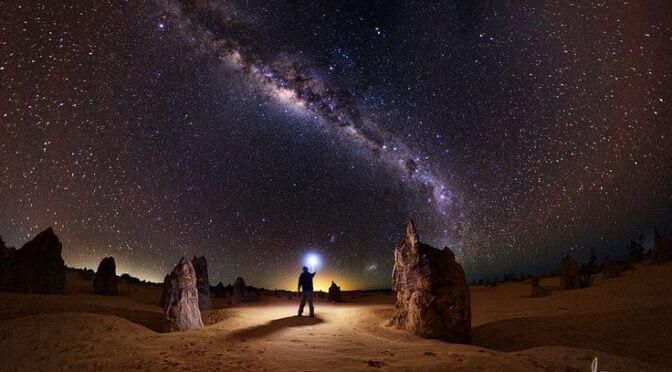In science, the tendency is to think that more discoveries = more knowledge. However, when it comes to the history of mankind, this is not always the case.
We’ve compiled five of the most baffling mysteries ever found, for which answers are still to be found.
The Shroud of Turin
The Vatican claims that this is not an authentic document, however this does not stop people from pondering the wonderful mystery of it.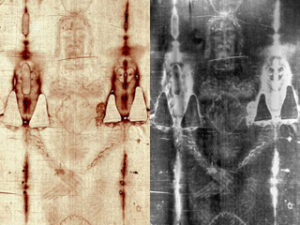
The imprint on the material seems to show an image of a bearded adult male.
There are signs of blood throughout, proving that the man came to a violent end. It is understandable that people believe this to be the burial cloth for Jesus Christ, as the weave in the fabric indicates that it came from the same era, and the blood pattern points to crucifixion as the cause of death.
There is some debate as to the era of the fragment, though, as some scientists have dated the shroud to be from the 13th or 14th century. Even if it is not Jesus’ burial cloth, it remains ‘shrouded’ in mystery.
The Nazca Lines
The Nazca lines are a collection of geoglyphs in Peru, and they are a mystery because of how they were created and for what reason.
There are about 13,000 individual lines forming 800 designs and covering an area of about 175 square miles. They were thought to be created between 500 BC and 500 AD.
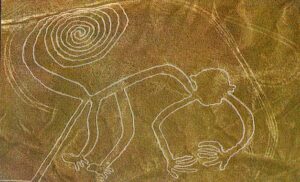
The designs appear to have been drawn by a giant’s hand. They depict animals, plants, designs and shapes. Strangely, their purpose is yet to be revealed. It is unique that they can only be seen fully from the air.
How would these ancient peoples have designed these? This is one of the mysteries of the Nazca lines.
Speculation abounds as to the involvement of aliens in these formations. Some say that they are landing places for alien craft, and others say they were even designed by ETs. More plausibly, they were designed to honor the gods of the Nazca people.
The Piri Reis Map
This map was accidentally discovered in a Turkish museum in 1929. No logical explanation has ever been offered for its illustrations.
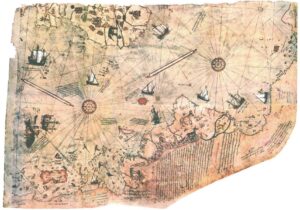 The backstory goes like this: in 1513 admiral Piri Reis drew this map of the known world. It included Spain, Portugal, Africa, the Atlantic Ocean, Caribbean, South America and Antarctica. It is theorized that the part of the map featuring North America and the Eastern part of the world was at some point destroyed.
The backstory goes like this: in 1513 admiral Piri Reis drew this map of the known world. It included Spain, Portugal, Africa, the Atlantic Ocean, Caribbean, South America and Antarctica. It is theorized that the part of the map featuring North America and the Eastern part of the world was at some point destroyed.
The mystery comes in when you think about what a 16th century Turkish admiral would have known about the world. How could he have designed such an accurate map without the aid of flight?
Also, without Azimuthal projection or spherical geometry, how could Reis have calculated the correct distances between continents and other coastlines? Also, Antarctica had not officially been discovered, adding to the mystery.
The Voynich Manuscript
This document was named for Polish antiquarian Wilfried M. Voynich. He discovered the manuscript in 1912 in a monastery in Italy. It is a book of strange pictures and an unknown and undecipherable language. It has been estimated to be written between 400 and 800 years ago by an anonymous author employing an unknown code.
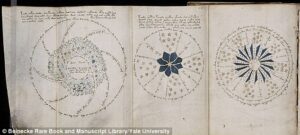
The Bimini Road
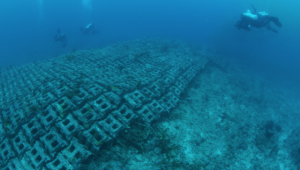 In 1968, off the coast of Bimini in the Bahamas, many flat, large limestone rocks were discovered under the water. Scientists were confused because the stones formed a street that spanned almost a mile straight. The formation seemed human created.
In 1968, off the coast of Bimini in the Bahamas, many flat, large limestone rocks were discovered under the water. Scientists were confused because the stones formed a street that spanned almost a mile straight. The formation seemed human created.
Naturally, many speculated that these were the ruins of an ancient advanced civilization. However others refused to believe this, saying that it could be the result of natural phenomena.
Whatever their thought, no one could deny one of the prophecies of Edgar Cayce, spoken in 1938: “A part of the ruins of the lost Atlantis will be discovered in the sea around the islands of Bimini…”
The origins of these ruins continue to trouble scientists and metaphysicians to this day.

